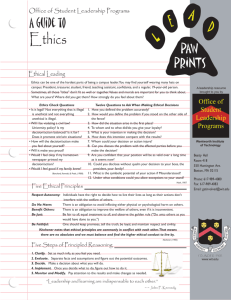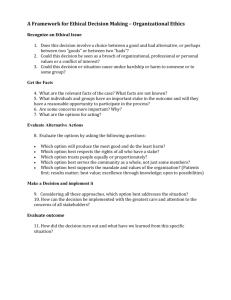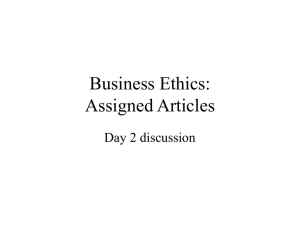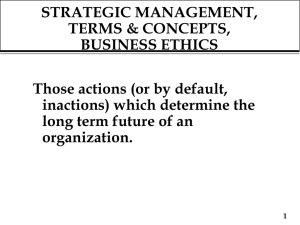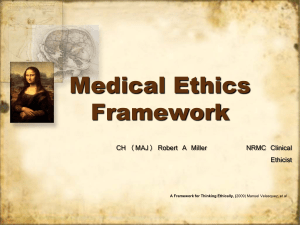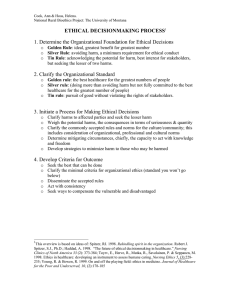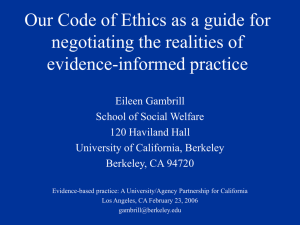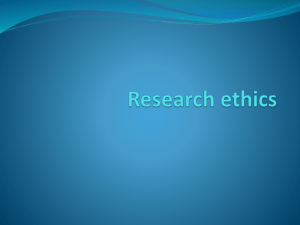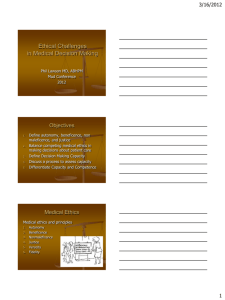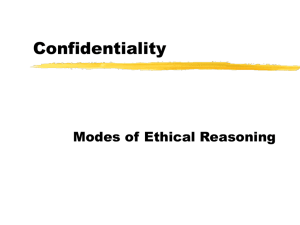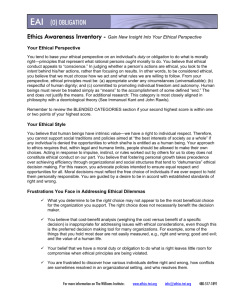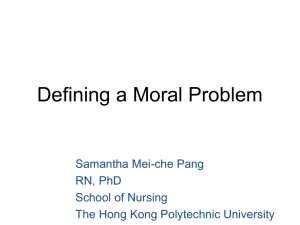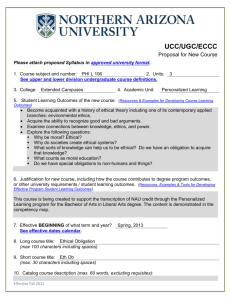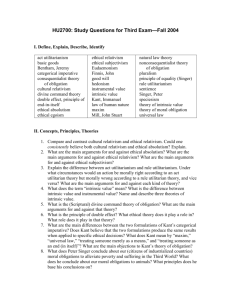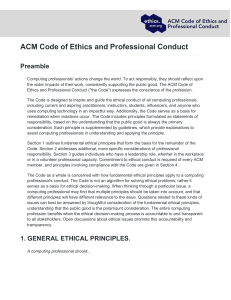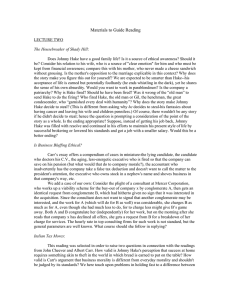Absolute URL
advertisement
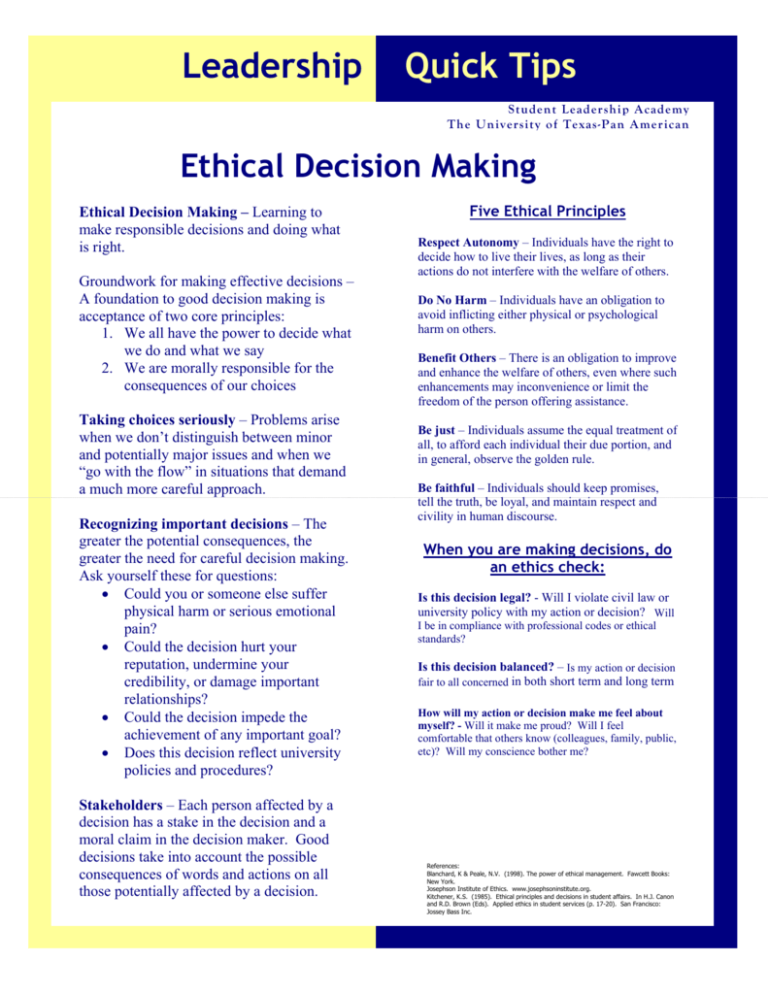
Leadership Quick Tips S tu den t Le ad er sh i p Ac ad e my Th e Un iv ers it y o f Te x as -P an A me r ic an Ethical Decision Making Ethical Decision Making – Learning to make responsible decisions and doing what is right. Groundwork for making effective decisions – A foundation to good decision making is acceptance of two core principles: 1. We all have the power to decide what we do and what we say 2. We are morally responsible for the consequences of our choices Taking choices seriously – Problems arise when we don’t distinguish between minor and potentially major issues and when we “go with the flow” in situations that demand a much more careful approach. Recognizing important decisions – The greater the potential consequences, the greater the need for careful decision making. Ask yourself these for questions: • Could you or someone else suffer physical harm or serious emotional pain? • Could the decision hurt your reputation, undermine your credibility, or damage important relationships? • Could the decision impede the achievement of any important goal? • Does this decision reflect university policies and procedures? Stakeholders – Each person affected by a decision has a stake in the decision and a moral claim in the decision maker. Good decisions take into account the possible consequences of words and actions on all those potentially affected by a decision. Five Ethical Principles Respect Autonomy – Individuals have the right to decide how to live their lives, as long as their actions do not interfere with the welfare of others. Do No Harm – Individuals have an obligation to avoid inflicting either physical or psychological harm on others. Benefit Others – There is an obligation to improve and enhance the welfare of others, even where such enhancements may inconvenience or limit the freedom of the person offering assistance. Be just – Individuals assume the equal treatment of all, to afford each individual their due portion, and in general, observe the golden rule. Be faithful – Individuals should keep promises, tell the truth, be loyal, and maintain respect and civility in human discourse. When you are making decisions, do an ethics check: Is this decision legal? - Will I violate civil law or university policy with my action or decision? Will I be in compliance with professional codes or ethical standards? Is this decision balanced? – Is my action or decision fair to all concerned in both short term and long term How will my action or decision make me feel about myself? - Will it make me proud? Will I feel comfortable that others know (colleagues, family, public, etc)? Will my conscience bother me? References: Blanchard, K & Peale, N.V. (1998). The power of ethical management. Fawcett Books: New York. Josephson Institute of Ethics. www.josephsoninstitute.org. Kitchener, K.S. (1985). Ethical principles and decisions in student affairs. In H.J. Canon and R.D. Brown (Eds). Applied ethics in student services (p. 17-20). San Francisco: Jossey Bass Inc.


